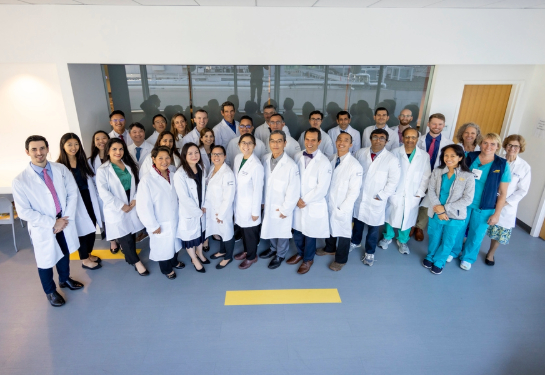Gastroenterology and Hepatology hosts annual GI and Liver Research Day
Conference will focus on the use of artificial intelligence and digital technology to improve patient care
How are artificial intelligence (AI) and digital technology being used in liver and gastrointestinal care? That’s the focus of the annual GI and Liver Research Day event hosted by UC Davis Health’s Division of Gastroenterology and Hepatology.
This year’s conference will be held on Wednesday, April 17 from 1:30-4 p.m. and Thursday, April 18 from 8 a.m.-2:30 p.m. Attendees can join in person at the Cancer Center Auditorium or virtually. The free event is endorsed by the American College of Gastroenterology and features speakers from UC Davis Health, Cedars-Sinai, UC Irvine Health and UCSF. Secure a spot by registering today.
Featured speakers will discuss AI and emerging technologies, how UC Davis Health is utilizing these tools and the importance of ethics and privacy with AI and digital health.
To learn more about the conference we spoke with Eric Wai Chak, associate professor of gastroenterology and hepatology, and Hisham Hussan, associate professor of gastroenterology and hepatology.
What are your thoughts on AI and emerging technologies in health care?
Eric Chak: I consider myself a student of AI and I’m excited to see where the field goes. AI has the potential to assist busy physicians with their daily tasks so they can spend more time with their patients.
Hisham Hussan: I believe AI and similar technologies have the potential to help improve disease outcomes, satisfaction, efficiency, early detection and remote monitoring for better health.
Why did you choose “AI and Digital Health in GI and Hepatology” as the theme for this year's conference?
Eric Chak: Everywhere you look, everyone is talking about AI — in the media and in medicine especially. We thought this would be a great way to explore the opportunities and challenges of this new technology to learn more about its capabilities and how it affects our field.
Hisham Hussan: Gastrointestinal diseases are a source of significant morbidity, mortality and health care costs for the U.S. population. AI can help mitigate these outcomes and revolutionize GI care from early cancer detection to better patient management and patient-centered care.
How is the Division of Gastroenterology and Hepatology currently using AI tools?
Eric Chak: Some of our clinicians and data scientists have developed a machine-learning model to better predict which patients are at greater risk of developing a common type of liver cancer, hepatocellular carcinoma.
Hisham Hussan: We have also started incorporating AI and digital tools to differentiate between patients who will benefit from an urgent evaluation and those who will need a colonoscopy vs. stool-based testing.
What are you most excited to learn about or discuss at this year’s Liver Research Day?
Eric Chak: I am excited to hear from all our speakers, but for me the keynotes will be particularly interesting. We have Brennan Spiegel, professor of gastroenterology at Cedars-Sinai, and Jason Samarasena, professor of gastroenterology at UC Irvine Health, talking about AI in colorectal polyp detection.
Hisham Hussan: I anticipate our discussions will delve into myriad advancements poised to shape the future of health care. Yet, if I were to pinpoint one area of excitement, it would be the intersection of AI and virtual reality in GI care. Brennan Spiegel, our esteemed speaker, will illuminate his groundbreaking research in this domain, and I eagerly anticipate gaining insights from his expertise.




